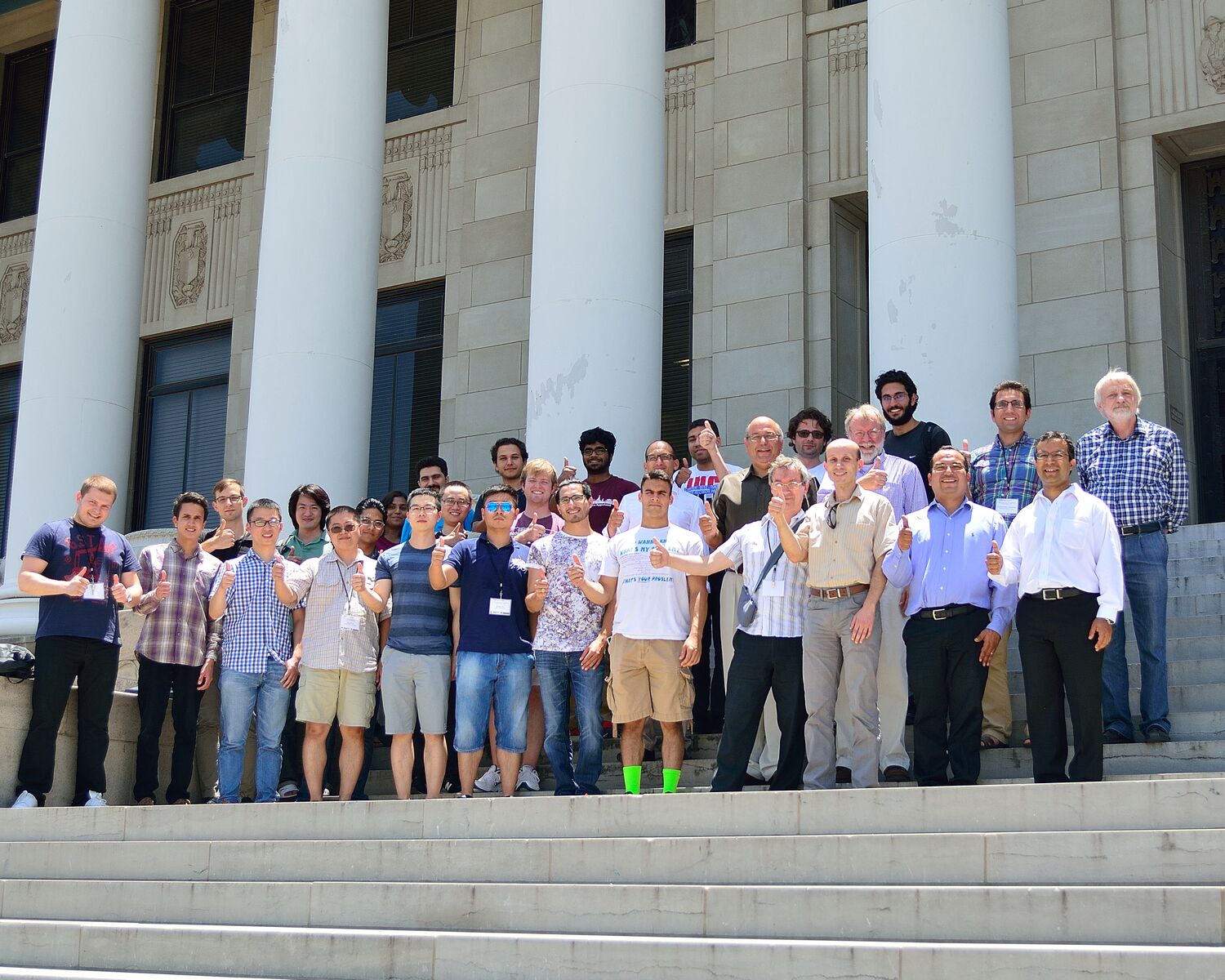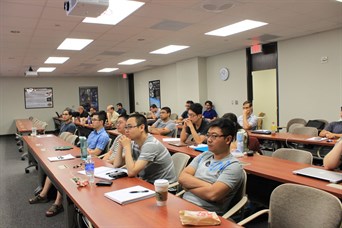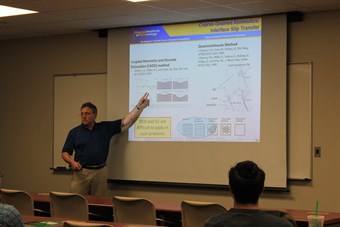
Scholars and graduate students from institutions across Europe, North Africa, the Middle East and North America attended the fourth International Institute on Multifunctional Materials for Energy Conversion (IIMEC) School on Computational Materials Science Across Scales at Texas A&M University in July.
IIMEC is a National Science Foundation-funded International Material Institute, established at Texas A&M, in partnership with Georgia Institute of Technology, the University of Houston and international research collaborators at universities in North Africa, the Middle East and Mediterranean countries.
The summer school served as part of IIMEC’s mission to provide students and faculty from the United States and participating countries with global research and international leadership experience.

Dr. Amine Benzerga, associate professor in the Department of Aerospace Engineering, and Dr. Raymundo Arróyave, associate professor in the Department of Materials Science, jointly organized the summer school with the support of the Dwight Look College of Engineering, the College of Science and the Office of the Associate Vice Chancellor for Engineering Research.

The school boasted instructors from Texas A&M, Georgia Tech, National Institutes for Standards and Technology, Los Alamos National Laboratories, Lawrence Livermore National Laboratory, Pierre and Marie Curie University (France), Arts et Métiers ParisTech (France), University of Cambridge (England) and The University of Duisburg-Essen (Germany).
Summer school participants included students from more than a dozen institutions, including six of the top universities in the U.S. as well as universities and research institutes in Mexico, France, Greece, the United Kingdom, Egypt and Saudi Arabia.
Over a period of 10 days, students were exposed to theory and practice sessions focused on different computational materials simulation tools, ranging from continuum to the electronic structure level. Hands-on computational laboratory activities were part of the class structure.
Students had access to Linux Cluster consisting of several hundred nodes/cores. State-of-the-art computational codes such as VASP, ABAQUS, LAMMPS, ParaDis, MatCalc, VPSC and MATLAB were used to illustrate the concepts covered in the school. Software and hardware infrastructure was facilitated by Dr. Lisa Perez, manager of the Laboratory of Molecular Simulation under Dr. Michael B. Hall, executive associate dean of the College of Science and professor of chemistry.